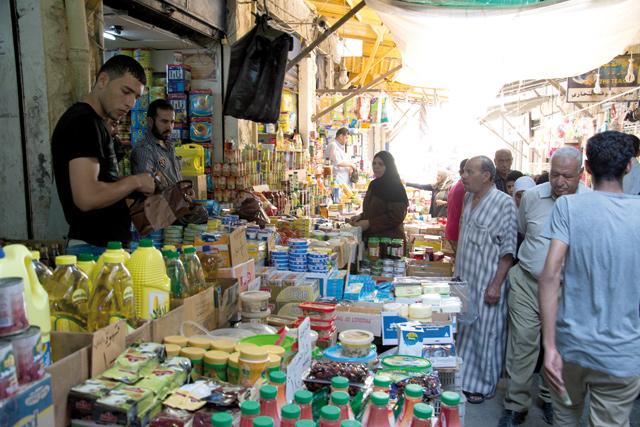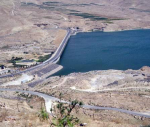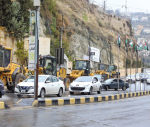You are here
Amman most expensive Arab city, 29th worldwide
By Dana Al Emam - Mar 23,2017 - Last updated at Mar 23,2017
AMMAN — Amman, together with Milan, ranked 29th internationally in the Worldwide Cost of Living Report 2017, which also ranked the capital as the most expensive Arab city to live in.
Issued recently by the Economist Intelligence Unit, the report is based on the cost-of-living survey, which compares the prices of 160 goods and services in 133 cities around the world.
On the same list, Abu Dhabi and Dubai ranked (62) and Bahrain (86), while Cairo, Doha and Kuwait city ranked (99).
Singapore ranked the world's most expensive city, followed by Hong Kong and Zurich (Switzerland), while Japan's Tokyo and Osaka cities came fourth and fifth on the global scale, according to survey results published by The Economist.
Meanwhile, the world's least expensive city is Almaty (Kazakhstan) coming at the end of the list, preceded by Lagos (Nigeria), Bangalore (India) and Karachi (Pakistan), according to the report.
The Economist observed that Asia hosts five out of the six most expensive cities in the world, while on the other hand, there is a gradual drop in the rankings for European cities, which made up eight of the 10 most expensive places a decade ago and now account for four only.
The report is mainly used by human resources managers to calculate compensation packages for overseas postings, according to The Economist.
Commenting on the report's findings, Economist Wajdi Makhamreh said the report depicts the economic conditions, noting that it does not take full account of all costs, including costs of schooling and healthcare.
He attributed Amman's performance in the report to the drop in the purchasing power among the families with medium and low income over the past few years, in light of fixed incomes and increasing prices of goods, services and taxes, noting that the lack of authorities’ control or oversight over the marketplace has allowed prices to hike further.
After a period of down trend, the inflation rate in Jordan rose in February this year to 4.6 per cent, compared to the same month of 2016, due to government’s correction measures that sent the prices of some services and commodities up.
Makhamreh added that the increasing inflation affects interest rates, and consequently negatively affects the overall economic performance and hinders business-doing prospects and the creation of new businesses.
Isam Qadmani, an analyst and columnist at Al Rai daily, agreed, citing a growing sense of increasing living conditions among the public.
He noted that the recent governmental measures that principally aimed at reforming the economy have in fact increased taxation burdens and did not register tangible improvements in incomes.
If inflation increases further in the future, the purchasing power will drop further, he said.
Faleh Juneid, an owner of a housing complex in Abu Nuseir neighbourhood, said he used to rent out a two-bedroom apartment for JD170 monthly a few years ago, but nowadays he rents out the same apartment for JD220.
“Everything is becoming more expensive,” he said.
Another citizen and former expatriate, Osama Obeid, said he used to get a “really good” salary when he worked at the United Arab Emirates, around a decade ago, so he did not feel that prices were expensive in the Gulf state.
Related Articles
AMMAN – Jordan ranked 65th globally in terms of the average net salary, with the monthly income standing at around $637, according to Numbeo
AMMAN — Amman was ranked most expensive city in the Arab world and 28th worldwide, exceeding some of the main Gulf, European, and North Amer
AMMAN — The Consumer Protection Society (CPS) on Saturday affirmed that Jordan is not the most expensive Arab country to live in, criticisin

















